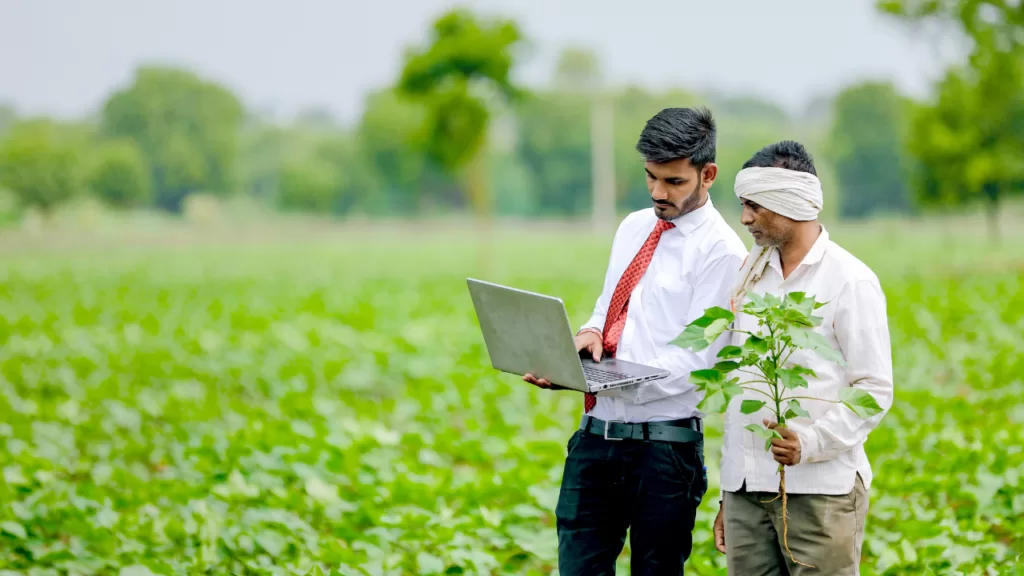Farming, an Economic Enabled Choice for the Future
Introduction
As we move forward into an uncertain future, it’s essential to consider the role of agriculture in our lives. Farming is not only a means of providing food for our growing population but also a powerful economic driver that can uplift communities and create sustainable livelihoods. In this blog post, we will explore the various benefits of farming as a profession and how embracing agriculture can lead to a more compassionate and economically empowered future.
The Multifaceted Impact of Agriculture on Society
Agriculture plays a crucial role in shaping our society in numerous ways. From supporting livelihoods through food production and job creation to providing raw materials for various industries, farming has far-reaching effects on our lives. Let’s delve deeper into some of these impacts:
Food Security and Nutrition
At its core, agriculture is about feeding the world. With a growing global population, the demand for food is ever-increasing. Sustainable agricultural practices ensure that we can meet this demand while preserving the environment and natural resources for future generations. Moreover, diverse agricultural production contributes to a balanced diet, providing essential nutrients for a healthy life.
Economic Development and Job Creation
Farming is a significant source of income and employment, particularly in rural areas. According to a report by BBVA, agriculture accounts for 25% of exports in developing countries in Latin America and about 5% of their regional GDP. In the United States, agriculture and related industries provide 19.7 million full- and part-time jobs, representing 10.3% of all employment. By embracing agriculture as a profession, individuals can contribute to their local economies and create opportunities for others.
Environmental Sustainability
Sustainable agricultural practices help preserve the environment by improving soil fertility, promoting sound environmental practices, and minimizing climate change impacts. Farmers and ranchers who adopt sustainable methods ensure the long-term profitability of their land while contributing to a healthier planet.

Overcoming Challenges in Agriculture
Despite its numerous benefits, agriculture faces several challenges that must be addressed to secure its future. Some of the most significant challenges include:
Climate Change
Changing weather patterns, extreme events, and climate change-triggered droughts are among the key drivers of food insecurity. Farmers must adapt to these changes by adopting innovative practices and technologies that can help mitigate the impacts of climate change on crop productivity.
Insufficient Agricultural Land
As the global population continues to grow, the demand for agricultural land increases. This puts pressure on existing resources and can lead to biodiversity loss and environmental degradation. Farmers must adopt sustainable land management practices and explore alternative food production methods, such as vertical farming and urban agriculture, to address this challenge.
High Investment in Agriculture
Agriculture requires significant research, technology, and infrastructure investment to remain competitive and sustainable. Governments and private sectors must prioritize funding for agricultural development to ensure the sector’s continued growth and success.
The Future of Farming: A Compassionate and Economically Empowered Choice
By embracing farming as a profession, individuals can contribute to a more compassionate and economically empowered future. Here are some ways in which agriculture can enable this vision:
Empowering Rural Communities
Farming provides a source of income and employment in rural areas, helping to reduce poverty and improve living standards. Investing in agriculture can empower rural communities and create opportunities for economic growth and social development.
Developing Younger Generations
Agriculture offers valuable learning experiences for younger generations, teaching them essential life skills and instilling a sense of responsibility towards the environment. By encouraging youth to pursue careers in agriculture, we can ensure the sector’s continued success and foster a new generation of compassionate and environmentally conscious farmers.
Promoting Environmental Stewardship
Farming can help the environment thrive when sustainable practices are adopted. By choosing agriculture as a profession, individuals can contribute to environmental conservation and promote a more sustainable future for all.
Farming as a Key Driver of Economic Growth and Sustainability
A Diversified Source of Income and Livelihood
With the right skills, knowledge, and resources, farming can offer many income-generating opportunities. Modern agriculture is no longer confined to traditional crop cultivation or animal husbandry; it encompasses a broad spectrum of agriculture-related activities such as agribusiness, agri-tourism, and value-added processing, creating opportunities for diversified and resilient income streams.
Encouraging Entrepreneurship and Innovation
The future of farming lies in the hands of innovative and tech-savvy entrepreneurs who are willing to venture into uncharted territories and adopt cutting-edge agricultural solutions. By integrating modern technologies such as precision farming, vertical farming, and smart tractors, farmers can improve productivity, minimize input costs, and boost overall farm profitability.
Spearheading Rural Development and Employment Opportunities
Investing in agriculture, particularly in rural areas, can lead to significant socio-economic returns. As farming increases job opportunities, it becomes a vital vehicle for rural development, triggering an upward spiral of increased income, better education, and improved healthcare services in these communities.
Sustainable Food Systems for a Growing Population
Farmers can ensure food security while minimising environmental damage by adopting sustainable farming practices such as organic agriculture, agroforestry, and crop rotation. These practices contribute to soil health, water conservation, and biodiversity preservation, ultimately benefitting current and future generations.

Charting Your Path in the Agricultural Industry: Key Considerations and Strategies
Identifying Your Niche and Area of Expertise
With the multitude of opportunities within the agricultural sector, aspiring farmers must identify their niche and area of expertise according to their interests and the unique characteristics of their location. Researching market demands, assessing available resources, and considering local climate conditions can help farmers make informed decisions on the type of agribusiness to pursue.
Gaining Essential Skills and Knowledge through Education and Training
Farming as a profession requires a diverse skillset encompassing practical agricultural techniques, business management strategies, and marketing knowledge. Pursuing formal education in agriculture, attending workshops, or participating in on-farm training can help aspiring farmers develop the necessary skills and knowledge to succeed in the industry.
Accessing Financial Resources and Government Support
To thrive as a farmer, one will need to secure sufficient financial resources to invest in land, equipment, seeds, and the requisite infrastructure. Exploring various financing options, such as government grants, loans, or crowdfunding, can help farmers kickstart their ventures. In India, several government schemes and programs are designed to support agriculture and rural development, and staying informed of these initiatives can prove invaluable in the pursuit of a successful farming career.
Building a Network of Support and Partnerships
Strong connections with fellow farmers, agricultural experts, and local communities can be instrumental in overcoming challenges and growing your farming business. By collaborating with relevant stakeholders, attending local agricultural events, and tapping into online forums, farmers can access valuable information and resources, exchange ideas, and form mutually beneficial partnerships.
Conclusion
Farming is an economically empowering and compassionate choice for the future. By embracing agriculture as a profession, we can contribute to food security, economic development, and environmental sustainability. As we face the challenges of climate change and a growing global population, investing in agriculture and supporting the farmers who work tirelessly to feed the world is essential. Together, farming can create a more compassionate and economically empowered future.

Frequently Asked Questions about Pursuing a Farming Career
Q1: Is farming a viable career option in today’s rapidly modernizing world?
A1: Absolutely! The need for sustainably sourced food in the face of rapidly escalating global population growth will only continue to rise. Modern agriculture encompasses various aspects, including agribusiness and innovative farming technologies, making it a dynamic and potentially lucrative career choice.
H3: Q2: Do I need to own land to start a farming venture?
A2: While owning land is undoubtedly helpful, it’s not a necessity to begin farming. Exploring alternatives such as community gardens, leasing agricultural land, or engaging in urban or vertical farming can provide entry points into the industry.
Q3: How significant is the role of technology in modern farming?
A3: Technology has become an integral part of modern agriculture, facilitating precision farming, data-driven decision-making, and eco-friendly practices. Embracing agri-tech can significantly improve crop yield, profitability, and sustainability in the long run.
🔬 Reviewed for Scientific Accuracy by:
With over 15 years of academic and clinical experience, Dr. Gautam oversees the scientific and editorial integrity of educational content related to herbs, nutrition, and wellness.
ResearchGate Profile | ORCID
Dr. Khurana brings deep expertise in nutraceutical formulation, phytochemistry, and metabolic health. He reviews FarmPURE content to ensure alignment with evolving biochemical and plant-based research.
ORCID
All FarmPURE Blog content is reviewed by domain experts to ensure it reflects the highest standards of botanical integrity, scientific relevance, and practical guidance. Our mission is to promote better health and beauty through the power of organic herbs, spices, and plant-based wellness solutions.
Disclaimer: The information provided in this blog is intended for general wellness and educational purposes only. It is not a substitute for professional medical advice, diagnosis, or treatment. Dr. Rashmi Gautam and Dr. Nikhil Khurana participate as scientific reviewers only, and do not provide or endorse personalized medical recommendations. Always consult a qualified healthcare provider before making decisions related to your health.

